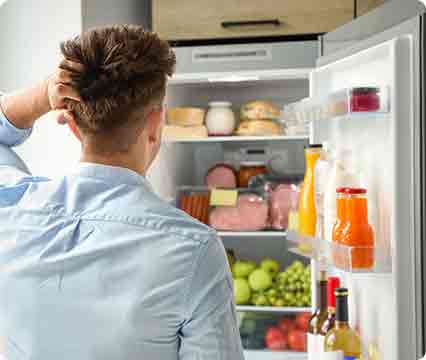Food cravings in food addiction: the distinct role of positive reinforcement
Meule & Kübler (2012) highlight the increasing amount of evidence being released suggesting that food cravings and excessive food intake are due to addictive processes. This present study administered the Yale Food Addiction Scale (YFAS), a novel measure for identifying those with addictive dietary patterns. The respondents of this online study completed this YFAS as well as the Food Cravings Questionnaire-Trait (FCQ-T). Those participants diagnosed with food addiction according to the YFAS had higher scores on all food craving subscales except for anticipation of positive reinforcement (which was thought to perhaps come as a result of eating). Analysis models later indicated positive correlations between all the food craving subscales with food addiction symptoms, while positive reinforcement could negatively predict signs of food addiction. This study therefore demonstrates that people with addictive eating patterns feel more food cravings but do not expect positive reinforcement through eating. [NPID: behavior, cravings, addiction, positive reinforcement]
Year: 2012
 Navigation
Navigation






